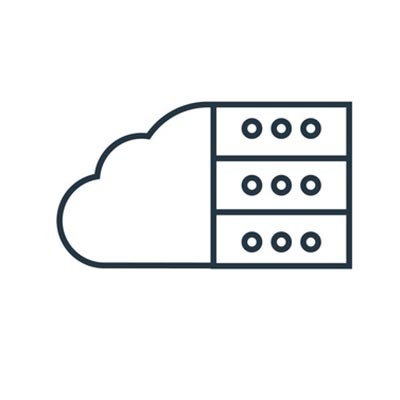Cloud computing has revolutionized the way business is done, but most businesses don’t always feel comfortable storing data and hosting critical infrastructure in the cloud. Every business has to determine what kind of computing infrastructure is right for them. Many businesses today have decided to spread their technology investments around as they attempt to find solutions for all types of operational needs.
Cloud Computing and the Modern Business
When I think about cloud computing, the first thing that comes to mind is the scalable nature of it. Say you have 25 employees...14 of them need productivity suites, five need graphics programs, and six need them both. Well not only can you gain access to all those types of software titles through the cloud, you can pay per license needed. In this case the company would purchase 20 versions of productivity software, billed per user. This would give each of them access to all the productivity applications as well as cloud storage associated with the suite. In this way it makes it much easier for businesses to control their computing costs.
Breaking down cloud computing options for business, it becomes important to understand the difference between public and private cloud platforms. The public cloud resources are like the options listed above. They include Infrastructure as a Service (IaaS), Platform as a Service (PaaS), and Software as a Service (SaaS) options. Essentially if it is hosted in another company’s data center and you don’t have access to the actual hardware, you are dealing with a public cloud solution.
A private cloud solution is typically hosted onsite or in a colocated data center. Since the company itself is responsible for the management and maintenance of the private cloud, and tends to be much more expensive in both hardware and management costs, there needs to be a good reason to want to invest in a private cloud platform when there are cost effective options on the public cloud market. One is that the company has physical control over the computing infrastructure and the way the server and endpoints access data. The most popular reason businesses roll out private cloud environments is that it keeps sensitive information under direct control - a major point of emphasis for IT administrators that head up regulatory compliance and other security-minded campaigns.
The Hybrid Cloud
For a while, the hybrid cloud was simply the use of some public cloud resources and some locally hosted cloud resources, but today’s hybrid strategies go far beyond that. The modern business needs its data and infrastructure to perform in an agile manner. Since businesses need to adapt to certain realities quicker than businesses of the past, combining the access to both locally-hosted and public cloud-hosted resources, and having them be able to integrate with each other becomes essential to the business’ ability to achieve its goals.
Being able to tie together all of your organization’s computing resources under a single data management platform is advantageous for any company. Hybrid cloud strategies allow businesses to not only utilize cost-effective public cloud platforms, but also provide security and control over their more sensitive data. It also provides value for the organization that isn’t so sure about moving their most important resources over to the cloud. Cloud computing provides enhanced accessibility, but it may not be for everyone.
Ultimately the hybrid cloud provides companies with financial and workload flexibility that no other IT strategy provides. If you would like to learn more about the hybrid cloud, or talk to one of our knowledgeable professionals about integrating cloud computing into your business’ IT call Grove Networks today at (305) 448-6126.

